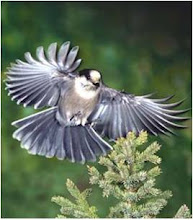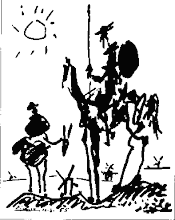Does this article from the Walrus Magazine resonate with anyone else?
Canadian Primal.
Here are some quotes from Tim Lilburn, one of the poet/thinkers mentioned in this piece:
"We [humans,] have this nostalgia for a homecoming, a yearning for a sense of being in the world as if it were home."
...and
"I sometimes think it's as if there's a singing in things that I am so far from being able to know that I'm only guessing that I can call it "singing." What I would very much like to do (why? I have no idea) is to come alongside that and sing with it."
A sense of 'home' is all about belonging and being connected. In reference to the sacred sites around Common Ground in Kenora, an elder described how the skin of the Life that is Mother Earth is thinner in certain places; that the connection to another way of knowing is easier in such places. There is something in me that understands this ...and that something is actually better able to understand it when I am present on that remarkable, gloriously beautiful intersection of water and land. Surely, this is a place where connection and singing are possible!

But relating to only the beautiful in our world is naive and romantic. Besides pretty sacred places, might there also be places made sacred in their wounding? -Batoche feels like this ...I'm told that Auschwitz does too. Are there places where the skin has been torn, if you will, where the connective tissues that bind our place as part of a vital cosmos are also revealed? Certainly, there are places here at the outfall of the Lake of the Woods where the injured sinews of our relationships with the Earth and with each other are raw and self-evident e.g.: Railway = Hole in Earth; Industrialized, consumer economy = displaced, wounded practitioners of ancient, sustainable economies. In the presence of connections so strained and severed poet/thinkers might be moved to cry alongside such a world; -for a home made so distant.
I have no idea where these thoughts are going, except that this place that juxtaposes the Boreal with Bay Street; this location that is the literal intersection/collision point for so many forces and things; this is the kind of place that prompts such thoughts. The range of human experience in the world that can be reflected upon from this vantage point is impressive indeed. Although jarring, the extreme contrasts within that scope feel important. It strikes me that the possibility of truer understanding exists only when the sweep of one's view is sufficient to prompt both singing and crying with our world. 'Common Ground' is one of those rare, valuable places where the the capacity for both beauty and horror in all our relationships is revealed.
It feels like there is something important here. Send in the poet/thinkers!



